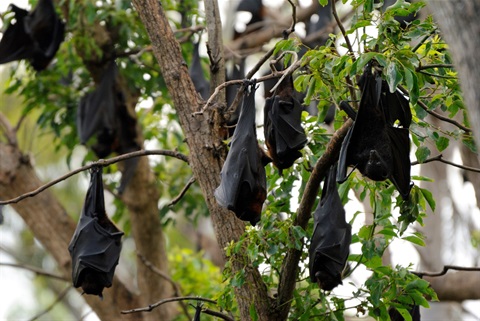
Council has begun activities to nudge the flying fox colony which has been roosting at the Rockhampton Botanic Gardens ahead of commemorative services for Anzac Day.
Planning and Regulatory Councillor Grant Mathers said Council hasn’t been able to take any action until now as there have been dependant young in the colony.
“In the lead up to Anzac Day we’ve been keeping a close eye on the colony,” Cr Mathers said.
“We’re grateful to have this window to try to nudge the flying foxes along ahead of the commemorative services taking place.
“We started activities on 18 April and will continue for eight days, with the exception of Anzac Day morning.
“The nudging activities we’re undertaking include shining lights into the roost and also playing sounds through a speaker and making other noises around dawn and dusk each day.”
“In May we’ll also begin a comprehensive dispersal which will include some other measures including deterrent scents and additional visual deterrents.
“I want to take this opportunity to thank residents nearby for their understanding during this time if you do happen to hear any noises, although we hope the impact should be very minimal.
“Flying foxes are a keystone species to Australian native flora and Council is undertaking best practise standards to ensure a safe dispersal.
“There are many other roosting sites in the local area that are more suitable including uninhabited areas, and we’ll be trying to encourage the colony to relocate to another area.”
Parks, Sport and Public Spaces Councillor Cherie Rutherford said visitors to the Botanic Gardens shouldn’t notice the nudging and dispersal activities while they’re ongoing.
“Most of the activities are taking place outside of opening hours, so it shouldn’t cause a disruption to visitors,” said Cr Rutherford.
“It’s beautiful weather at the moment and a really lovely time to visit.
“It’s no secret, however, that the flying foxes are causing some damage, and the gardens aren’t the right place for them to roost.
“It is important that we undertake these activities to address the impact the colony has had on the Botanic Gardens and to protect the heritage of the botanical collection.”






